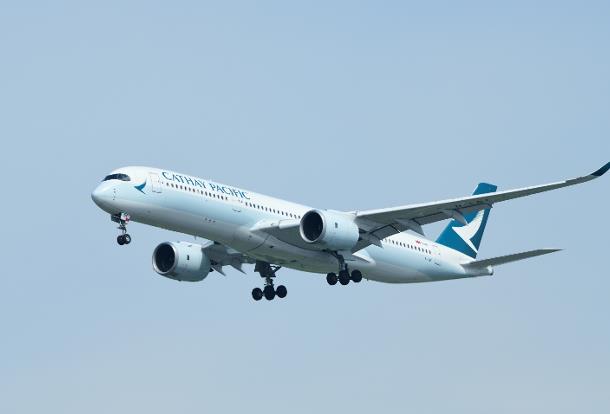ChinaTravelNews, Ritesh Gupta - If there is one aspect of digital transformation that makes it an attractive proposition, then it has to be customer-centricity.
The journey of a passenger can be riddled with pain points. And the precarious part is an experience, whether good or bad, isn’t recorded in most cases. In an era, when every click on an airline-owned site/ app or a conversation via any direct channel needs to be tracked, not doing so means carriers aren’t aware of what’s happening with their travellers.
In this context, what and how digital transformation can contribute in terms of improving the situation is important.
“Airlines themselves need to do a better job of understanding their customers (intent, actions etc.). There is a need to work out a single reference for each of their customers (must uniquely identify them), track all of their activities, interactions with them,” says Blair Koch, Datalex’s CTO and President USA. He acknowledges that working on a customer master data management capability is costly and technically difficult but is must to meet the desired objectives of digital transformation.
Koch, who is scheduled to speak at the upcoming 2017 China Airline Distribution Conference, scheduled to take place in Shanghai (18-19 October), says the single view of the customer needs to be leveraged across all of the digital touchpoints.
While data is important, there are other key areas – be it for technology, ecommerce, operations, marketing, distribution and even organisational structuring - which all need to come together and work in tandem to make such transformation click. Koch, who referred to the significance of encompassing all core activities related to retailing and a passenger’s journey via a “digital platform”, explained the following areas:
1. Define scope and roadmap for digital transformation: In order to start in an earnest manner, ensure that the scope of such undertaking is finalised appropriately, otherwise, as Koch says, the initiative will end up being a `catch all’ for all functional areas’ priorities, and therefore will not be successful.
2. Assessing the readiness of an enterprise: Koch points out that most of the airlines are hindered from being innovative because of their respective organisational structures. “So to be innovative, agile and gain best results from digital transformation, they need to reorganise themselves and breakdown the barrier that exists between traditional IT and non-IT/ business units within an airline. Most airlines put their teams together, into a digital team – have IT and non IT disciplines work in unison to deliver the requisite capabilities,” he says. If they continue to work in silos, there won’t be enough agility, there would be bureaucracy, and it leads to extended time to market, higher costs and overburdens digital transformation and the effort tends to fall apart.
Also, the team needs to be top-down driven, with astute leadership putting a strong foundation. “The executive leadership needs to buy into and own the undertaking of this magnitude. Then push it through the entire enterprise, break down the barriers for the working group to work on digital transformation,” mentioned Koch.
3. Be prepared for heavy-lifting in being strategic: Koch says most airlines “acknowledge the fact that they are not providing the customer experience (CX) that they should be capable of providing. They know they want to be retailers, they aren’t optimizing their capability via respective their current digital platforms. There is a realisation across the board of airlines that they need to improve their digital capability to drive a better CX,” he observed.
Another common theme among airlines is a need to drive to be more proficient when it comes to mobile. “A lot of airlines are focusing on mobile, but not enough is being done in terms of heavy-lifting in being strategic about building the digital platform that would enable them to achieve the outcome as they desire. Airlines know the strategy needed for digital transformation but they are attaching too much of a tactical way and that’s going to prevent them from achieving the desired outcome,” said Koch.

Blair Koch, CTO and President USA, Datalex
4. Significance of core data asset: In order to inch closer to an effective digital transformation, airlines need to have a core data asset of their airline transactional data (that comes via transactional systems that collect, store, modify and retrieve the data emanating in an organisation). “Work out an ability to collect all transactional data from their operational and customer systems. Core data asset needs to capture the physical world in their electronic world. There is a need to co-relate different aspects of the transactional data together to drive a better customer experience (CX),” said Koch.
5. IT architecture and airline-specific systems/ engines: IT capabilities need to be in place in order to perform an effective digital transformation - to have real-time event enablement and a core data asset that airlines can leverage in their digital channels. “Cloud now provides airlines the opportunity in terms of relatively quicker time to market, both from their initial deliverables of their transformation and then for ongoing agile development of follow-on capabilities. There is an opportunity to reduce the time taken to set up legacy dedicated IT in order to support digital transformation,” mentioned Koch. “Count on cloud for time to market, agility and cutting down costs. But this doesn’t need to be confused with the actual delivery of customer-centric capabilities required. So it needs to be realized that cloud doesn’t deliver the business capabilities required. Cloud doesn’t do that for you,” explained Koch.
Airlines need to make the most of offerings available from technology providers for the transactional systems or discreet functions of running an airline either from operations or customers’ perspective. And then integrate those transactional systems and collect the data, and further co-relate them to drive a better customer experience. “So airlines should buy “commodity transactional systems” and build further/ configure products for differentiation. So be it for one specialist or best-of-the-breed, be it for digital commerce platform, PSS etc., focus on the best of the systems that are available. Airlines shouldn’t attempt to build those systems themselves, not a lot of value in this for them,” said Koch.
So every interaction – responding to a service request, inquiry or even making an offer - needs to make the most of airline-specific transactional systems plus retailing capabilities (that feature information about the customer).
6. Distribution strategy: The scope of digital transformation should include distribution strategy.
Once airlines are in a position to craft what deal or offer to push for each request coming in via an indirect channel (based on the NDC standard), then they can make the most of their partnership with indirect partners.
Travel technology specialists are also working on new platforms where real-time business intelligence can be leveraged for personalisation of offers.
Koch referred to the significance of a platform strategy where not only core data asset is fully leveraged, but airlines also can focus on setting up a digital marketplace (for themselves), backed up by a strong API strategy.
In case if airlines and intermediaries have different APIs or versions of NDC XML APIs, then how does connectivity take place through the platform? In such cases, as Koch says, the same goes through API governance. “A part of your digital transformation should be strong API governance. (Take into consideration), how the marketplace is connecting with the marketplace and accordingly, managing the backward compatibility of the API. If an airline opts for setting up a marketplace that is a platform your airline then focusing on the overall API governance process is must. This would mean working out custom APIs depending upon the business partner that intends to connect to the platform,” he said.
This platform can also help airlines to adjust to any market, any audience.
Referring to China, Koch said this market has accelerated and nudged ahead all of the other markets in terms of mobile commerce. “Mobile is undoubtedly is today’s table stakes in any market, but more so in China and this market has gone beyond any European or the U. S. market. So being ready for mobile-first, or possibly even mobile-only environment in China is imperative for any travel e-commerce company. Also, in China, there is much more acceptance of consolidators or 3rd party distribution of the product among airlines. There is acceptance that there is a need to put in place a digital platform that can accommodate them and allow them to have access to their products in order to drive more revenue,” he said.
“If there is an official account on WeChat and a transaction takes place, the platform would facilitate keep a tab on user’s activity on this account. The desire would be to collect all interactions with the customer regardless of the channel though there could be technology barriers depending upon access. An important part of digital transformation is to understand conversations with customers across different channels. So if a customer starts search or shopping on one channel and completes a transaction on another channel, then the digital platform should accommodate that. So the platform is ecosystem-agnostic,” he said.
As for blending 1st party data and 3rd party data to identify a customer via a probabilistic method still remains an issue. “That is a problem. So customers will still have interactions with airlines through 3rd parties that are disaggregated from the airlines, but the airline needs to sort this to enhance their own data by collaborating with 3rd party sources. So the sum of interactions if it can incorporate non-airline owned touchpoints then it would strengthen the single view of the customer,” said Koch.
So with this, be it for a loyalty program member or an anonymous traveller, digital transformation featuring a data-centric platform can result in strengthening of customer-centricity – revenue goes up, margins are higher, and eventually a better customer experience.
Blair Koch is scheduled to deliver a speech on "How to Deliver A Successful Airline Digital Transformation?" at the upcoming 2017 China Airline Distribution Conference, which will take place on October 18-19 in Shanghai.




